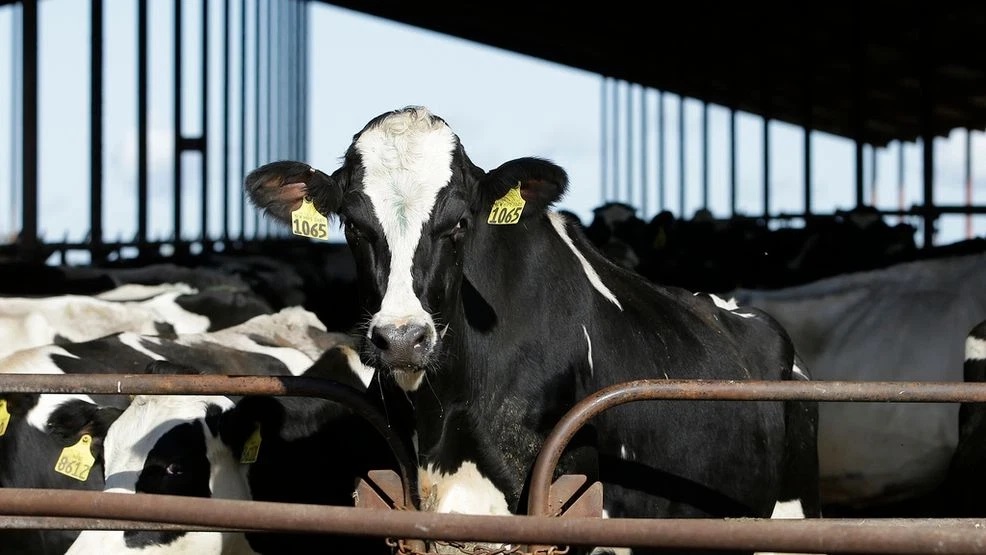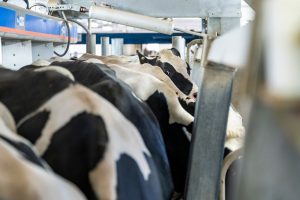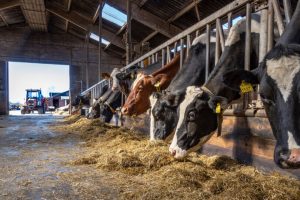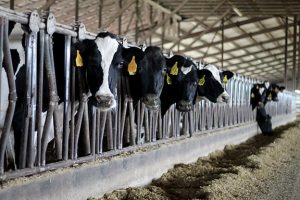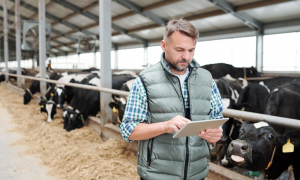
Today, Michigan Department of Agriculture and Rural Development (MDARD) Director Tim Boring announced the detection of highly pathogenic avian influenza (HPAI) in a dairy herd from Clinton County, bringing the total number of affected dairy herds in Michigan to 30. Testing through the Michigan State University Veterinary Diagnostic Laboratory initially detected this case. Samples have been sent to the U.S. Department of Agriculture’s (USDA) National Veterinary Services Laboratories for additional confirmatory testing.
Regardless of the species, biosecurity remains the best tool available to combat HPAI. On May 1, 2024, Director Boring issued the Determination of Extraordinary Emergency HPAI Risk Reduction and Response Order (HRRRO). In addition to other protocols, the order requires all dairy operations in Michigan to adopt enhanced biosecurity measures, collectively reducing the risk of introducing this virus on to farms. The order also prohibits the exhibition of all lactating dairy cattle, and those in the last two months of pregnancy, until there are no new cases of HPAI in Michigan dairy cattle for at least 60 consecutive days. No dairy cattle of any age from an infected premises may be exhibited until further notice.
In addition to these requirements, following a few key steps can also be fundamental to protecting the health and vitality of Michigan’s dairy cattle:
- Delay or stop incoming or returning animals from herds with unknown or suspect health status.
- Isolate all animals that are new or returning to your farm.
- Monitor the health of your animals daily.
- Contact your veterinarian if there are ever any animal health-related concerns or if you would like to develop a secure food supply plan.
- Sick animals should have dedicated equipment and be cared for after tending to healthy animals first.
- Clothing, footwear, and equipment worn/used around sick animals should not be worn/used around other animals until they are cleaned and disinfected. Use an EPA-registered disinfectant effective against avian influenza.
- Do not share tools, equipment, trailers, etc. with other farms.
- Clean and disinfect the interiors of trailers used to haul animals from other operations.
- Limit non-essential visitors to your farm.
- If individuals have recently been on a poultry farm, they should not visit a dairy operation, and vice versa.
- Require or provide clean clothing and footwear to those entering your farm.
- Use hand-washing stations and provide gloves to those working on your farm.
As part of the disease response, MDARD is working with the herd veterinarian to monitor the health of the animals and conduct trace investigations. Additionally, MDARD and various federal and state partners continue to offer personal protective equipment at the request of dairy operations. The department continues to diligently work with local, state, and federal partners to quickly respond to reports of HPAI to mitigate the spread of the disease and provide outreach.
You can now read the most important #news on #eDairyNews #Whatsapp channels!!!
🇺🇸 eDairy News INGLÊS: https://whatsapp.com/channel/0029VaKsjzGDTkJyIN6hcP1K
